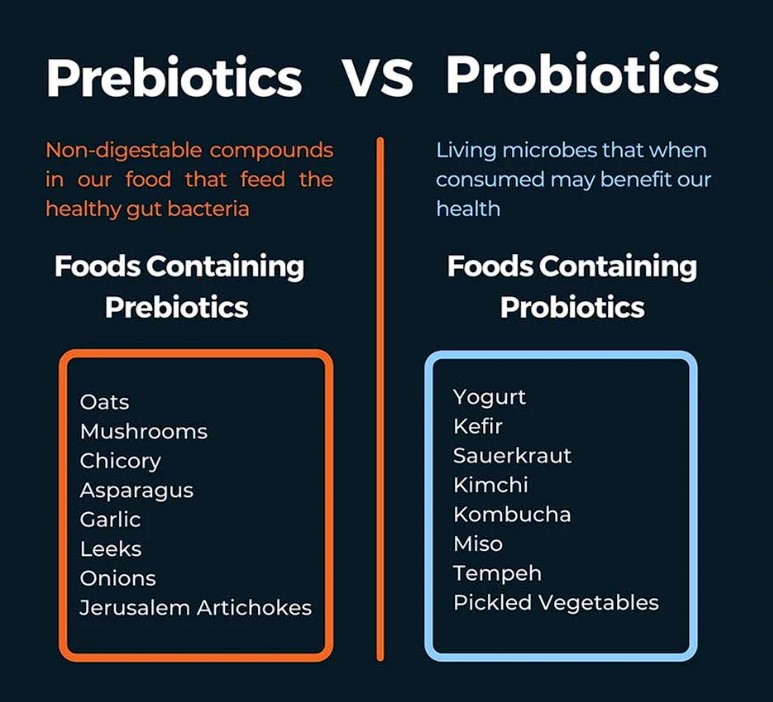Probiotics and Prebiotics: Differences

Probiotics and prebiotics are perhaps one of the most hyped products of the recent past and the future, which provides sufficient evidence for the role of the mentioned preparations in the improvement of the condition of the stomach. However, the two terms are sometimes used interchangeably as if they are the same thing. Even though both are important for the gut microbiota, prebiotics and probiotics are not the same thing.
What are Probiotics?
Probiotics are defined as live microorganisms, which, in adequate amounts, confer health benefits on the host and are mostly bacteria. Examples of these probiotics are those that belong to the Lactobacillus and Bifidobacterium families. Some of the foods that contain probiotics include yogurt, kefir, aged cheeses, kimchi, sauerkraut, miso, and tempeh. These foods feature beneficial bacteria that move into the gastrointestinal tract, where they help with digestion, nutrient uptake, immunity, and other functions.

Ref. URL: https://www.trifectanutrition.com/hubfs/Prebiotics-vs-Probiotics-jpg.jpeg
Some key benefits of probiotics include:
– Relieve stomach problems and related symptoms such as bloating, flatulence, and diarrhea
– Boost nutrient absorption
– Balance gut microbiome
– Support immune function
– Tackle some mental health disorders
What are Prebiotics?
Prebiotics, on the other hand, are substances that are not digestible and are more like food for the good bacteria (probiotics) in your tummy. As probiotics require nutrients to support the growth of probiotics, then prebiotics are crucial. Prebiotics are widely applied and include inulin, fructooligosaccharides, galactooligosaccharides, resistant starch, and arabinoxylan. Sources of these fibers include garlic, onion, asparagus, bananas, whole grain products, beans, lentils, nuts, and seeds.
Benefits of prebiotics include:
- Foster the growth of good bacteria
- Facilitate and enhance the digestive process and peristalsis
- Enhance mineral absorption
- Support bowel regularity
- Increase immunity and reduce the emergence of new pathogens
- Help regulate appetite
Interaction of Probiotics and Prebiotics
Gut health requires the presence of good bacteria, commonly referred to as probiotics, and the fibers that feed the bacteria, referred to as prebiotics. Probiotics need prebiotics to feed and synthesize since they work by fermenting certain components in foods. The byproducts of this process then feed your cells and improve a lot of functions that occur in your body. Well, that is a very appealing idea, and it is a perfect example of a win-win situation. This means that it is crucial to have more foods containing live-friendly bacteria, also known as probiotics, and sufficient amounts of fiber, which are called prebiotics. For instance, mix yogurt with bananas and berries, miso soup with tofu and onions, kefir smoothies with spinach and flaxseed, etc.; ensure you take adequate fiber, avoid refined foods, and try to take traditionally fermented and cultured foods.











